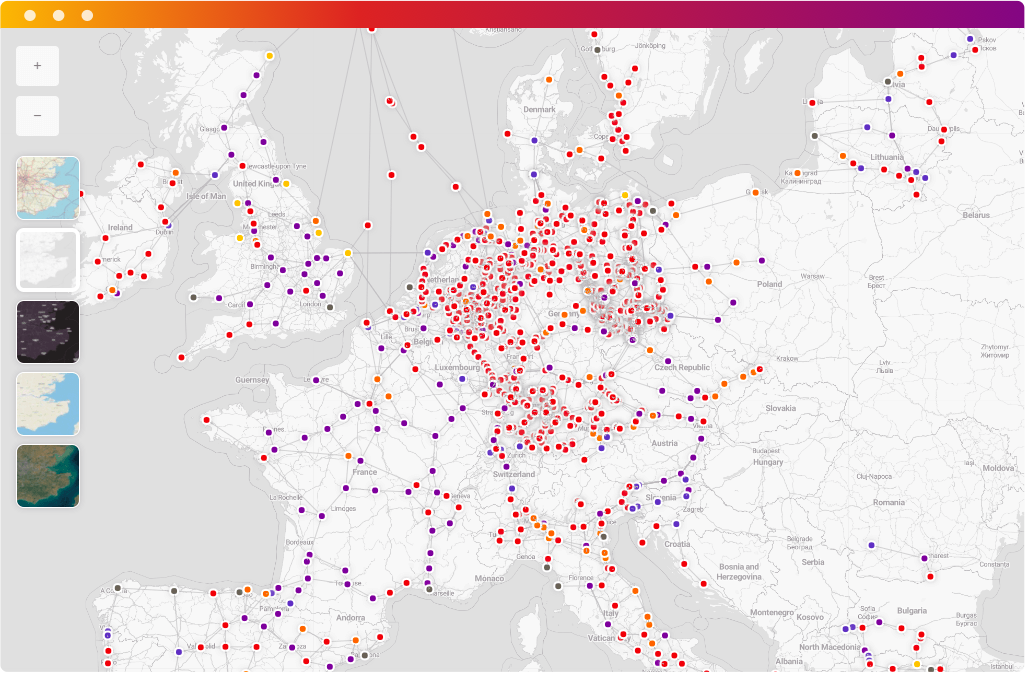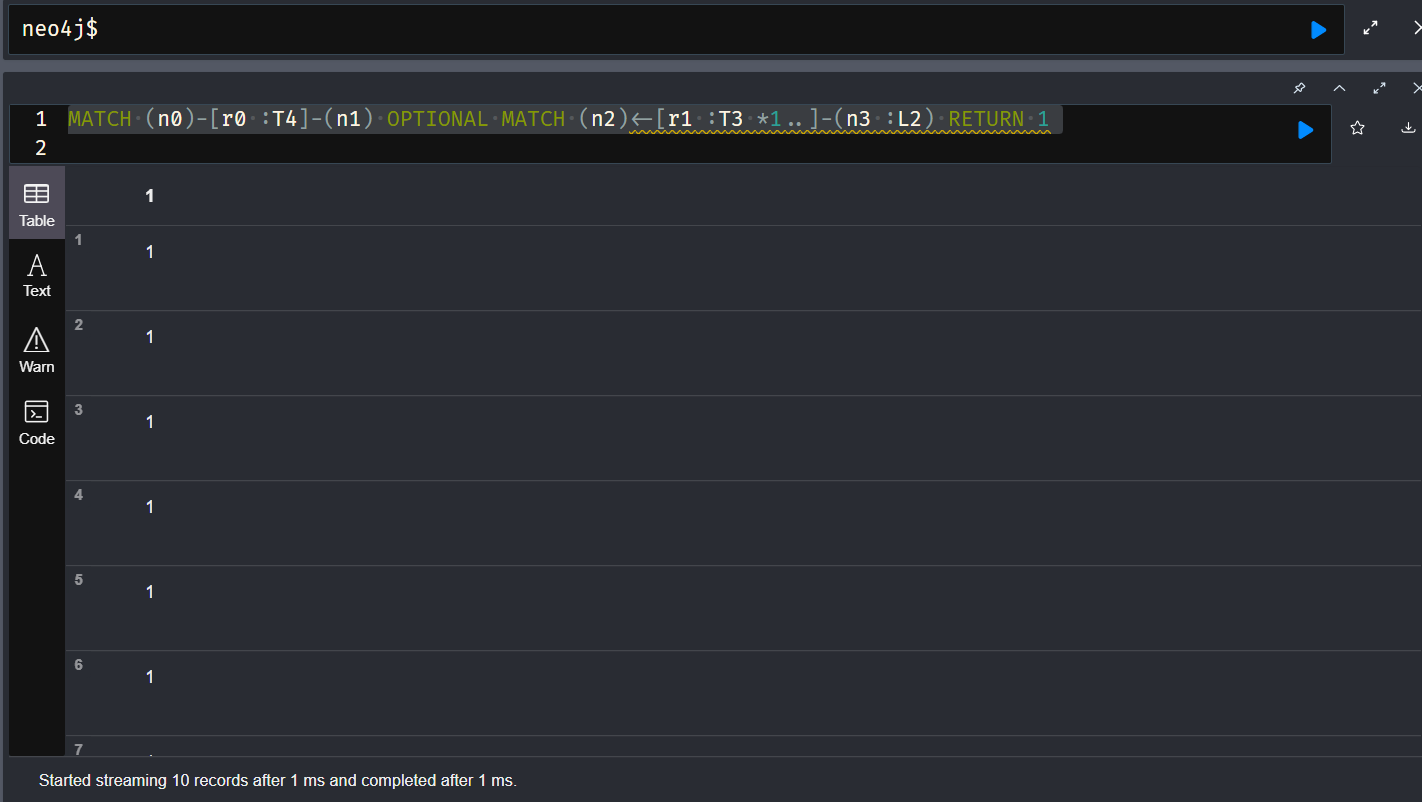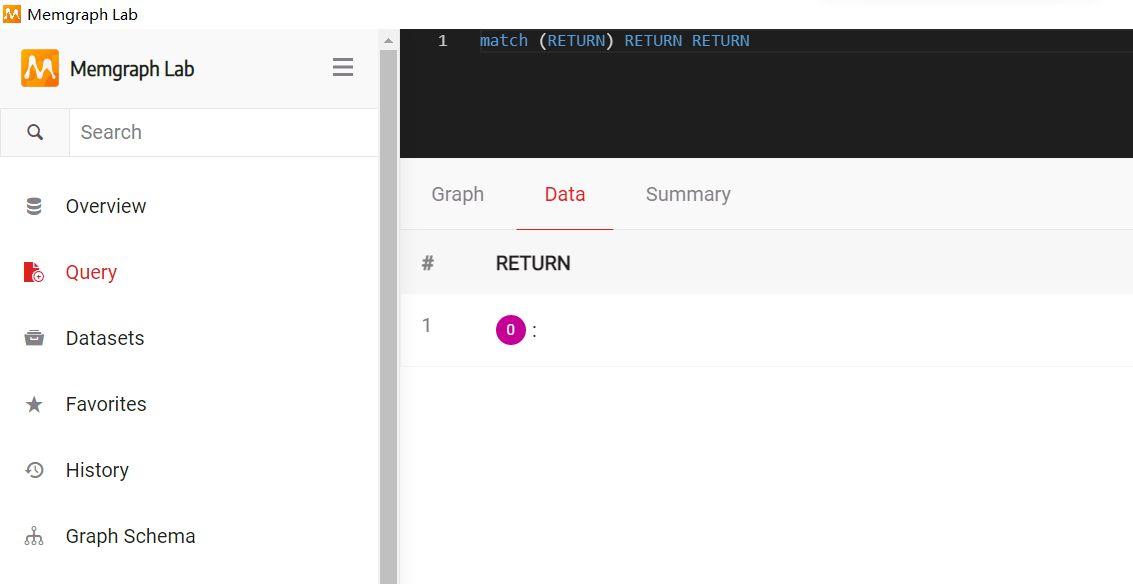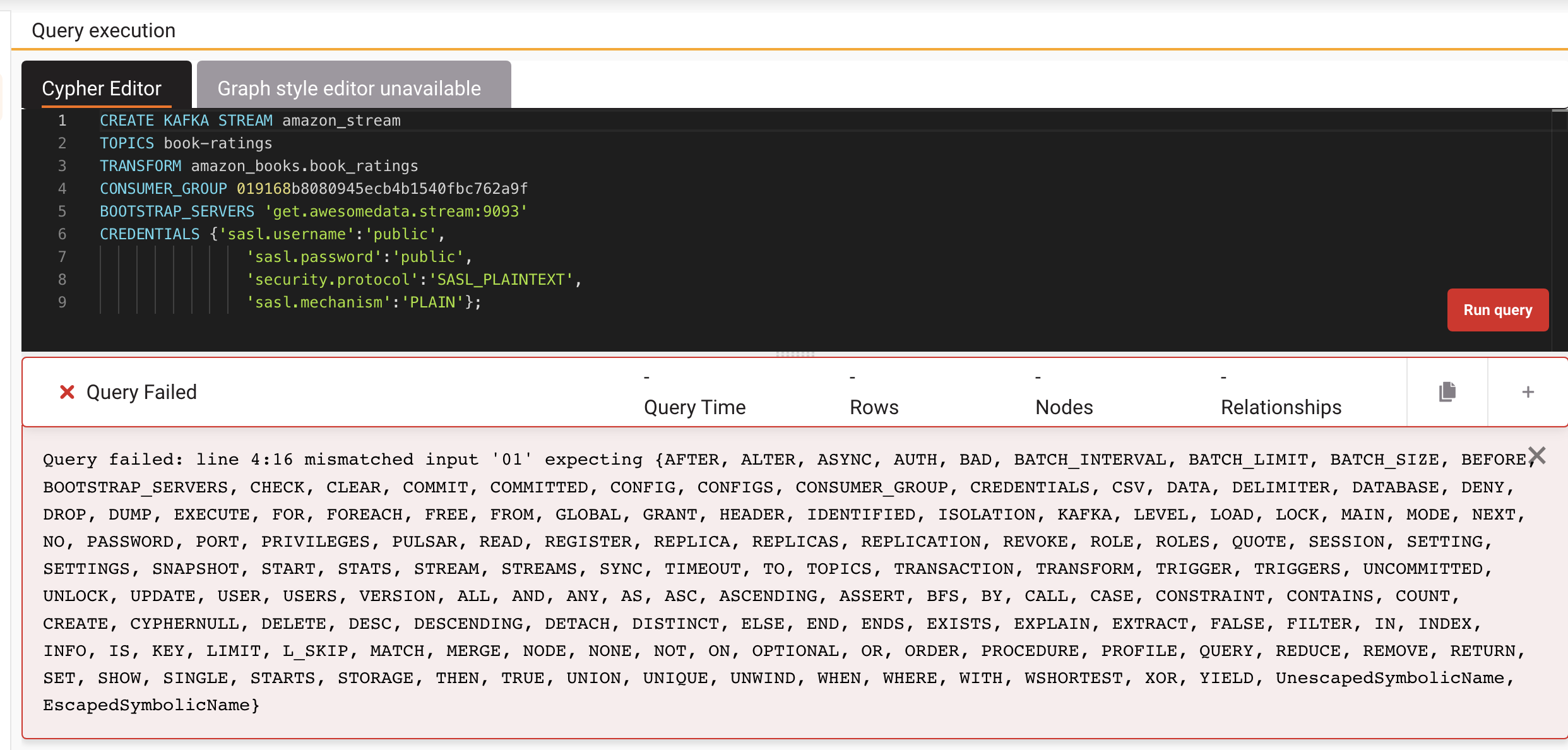Memgraph is an open source graph database built for real-time streaming and compatible with Neo4j. Whether you're a developer or a data scientist with interconnected data, Memgraph will get you the immediate actionable insights fast.
Memgraph directly connects to your streaming infrastructure. You can ingest data from sources like Kafka, SQL, or plain CSV files. Memgraph provides a standard interface to query your data with Cypher, a widely-used and declarative query language that is easy to write, understand and optimize for performance. This is achieved by using the property graph data model, which stores data in terms of objects, their attributes, and the relationships that connect them. This is a natural and effective way to model many real-world problems without relying on complex SQL schemas.
Memgraph is implemented in C/C++ and leverages an in-memory first architecture to ensure that you’re getting the best possible performance consistently and without surprises. It’s also ACID-compliant and highly available.
- Custom query modules - Run Python, Rust, and C/C++ code natively; check out the MAGE graph algorithm library.
- Deep-path traversals - Use advanced capabilities such as accumulators and path filtering without adding additional application logic.
- Native support for machine learning
- Streaming support & dynamic algorithms
- Multi-tenancy
- High availability replication
- Authentication & authorization
- Role-based and label-based access control
- Monitoring via HTTP server
You don't need to install anything to try out Memgraph. Check out our Memgraph Playground sandboxes in your browser.
You can find the binaries and Docker images on the Download Hub and the installation instructions in the official documentation.
Check out Memgraph Cloud - a cloud service fully managed on AWS and available in 6 geographic regions around the world. Memgraph Cloud allows you to create projects with Enterprise instances of MemgraphDB from your browser.
Connect to the database using Memgraph Lab, mgconsole, various drivers (Python, C/C++ and others) and WebSocket.
Visualize graphs and play with queries to understand your data. Memgraph Lab is a user interface that helps you explore and manipulate the data stored in Memgraph. Visualize graphs, execute ad hoc queries, and optimize their performance.
Import data into Memgraph using Kafka, RedPanda or Pulsar streams, CSV and JSON files, or Cypher commands.
The Memgraph documentation is available at memgraph.com/docs.
Command line options that Memgraph accepts are available in the reference guide.
Welcome to the heart of Memgraph development! We're on a mission to supercharge Memgraph, making it faster, more user-friendly, and even more powerful. We owe a big thanks to our fantastic community of contributors who help us fix bugs and bring incredible improvements to life. If you're passionate about databases and open source, here's your chance to make a difference!
Learn how to download, compile and run Memgraph from source with the Quick Start guide.
Interested in the nuts and bolts of Memgraph? Our internals documentation is where you can uncover the inner workings of Memgraph's architecture, learn how to build the project from scratch, and discover the secrets of effective contributions. Dive deep into the database!
Ready to jump into the action? Explore our contributing guide to get the inside scoop on how we develop Memgraph. It's your roadmap for suggesting bug fixes and enhancements. Contribute your skills and ideas!
Our commitment to a respectful and professional community is unwavering. Every participant in Memgraph is expected to adhere to a stringent Code of Conduct. Please carefully review the complete text to gain a comprehensive understanding of the behaviors that are both expected and explicitly prohibited.
We maintain a zero-tolerance policy towards any violations. Our shared commitment to this Code of Conduct ensures that Memgraph remains a place where integrity and excellence are paramount.
Memgraph Community is available under the BSL
license.
Memgraph Enterprise is available under the
MEL license.
- 💜 Discord
- 🌊 Stack Overflow
- 🎥 YouTube






































